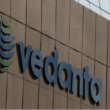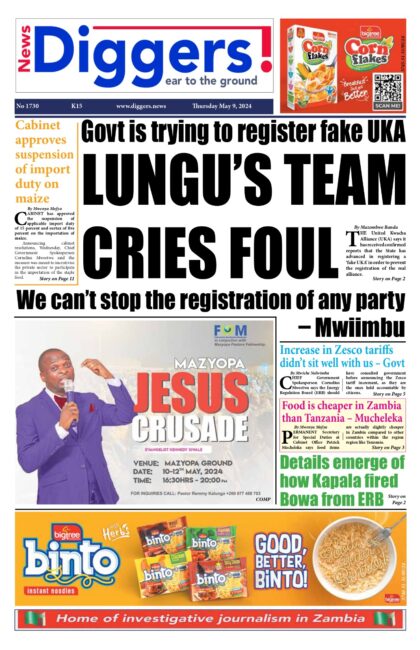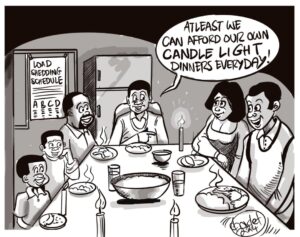KONKOLA Copper Mines Plc ceased to be a member of the Zambia Chamber of Mines because the mining company stopped paying the required subscription fees, says Chamber president Goodwell Mateyo.
And Mateyo has expressed confidence that the rise in copper prices could spur investment in the Zambian mining industry.
When asked whether the creation of KCM subsidiaries by Provisional Liquidator Milingo Lungu was a better business model to suit Zambia’s harsh economic climate, Mateyo declined to comment on the unprecedented development but revealed that KCM was no longer its member because it failed to pay up the required subscription fees.
On Monday, KCM acting chief executive officer Enock Mponda announced that the struggling mining giant was to be reorganised and restructured into two subsidiary companies effective February 1, 2021, in a bid to increase efficiency, foster optimisation and boost business opportunities.
He disclosed that the move to split KCM into two companies, namely KCM SmelterCo Limited, and Konkola Mineral Resources Limited, was decided by Provisional Liquidator Milingo Lungu.
KCM SmelterCo Limited has been in existence since 2002 and fully owned by KCM, but had been dormant since then.
The companies would begin to operate under the names KCM SmelterCo Limited and Konkola Mineral Resources Limited respectively, with two separate Management structures and employee arrangements.
“I can’t comment on KCM directly because KCM is no longer a member of the Chamber of Mines, they fell behind significantly on their subscriptions, so they are not one of the members of the Chamber of Mines. Speaking as an industry, as a whole, I think it’s important to respect the rule of law and to promote security of investments and potential investments in the industry,” Mateyo told News Diggers! in an interview in Lusaka.
And commenting on the surging copper prices on the international market, which recently breached the US $8,000 per tonne threshold for the first time since 2013, he expressed confidence that the rallying commodity prices could boost further investments in the country’s economy.
“We had the COVID-19 crisis, which obviously affected the way we normally operate our businesses, but at the same time, we saw that South America was significantly affected by the COVID-19 crisis at about the same time that China was experiencing recovery and somehow was significantly responsible for demand in copper and that saw an uptake in copper price,” said Mateyo. “Obviously, the regulatory and investment environment is still not conducive, mostly to do with the current Mineral Royalty Tax (MRT) that we have and the non-deductibility of Mineral Royalty Tax on the basis of Corporate Income Tax computation, but that’s on the one hand. On the other hand, significant rise in copper prices might reach a point where it’s significantly overshadowed by the prospects of reward and that might spur investment in the industry in our country.”












